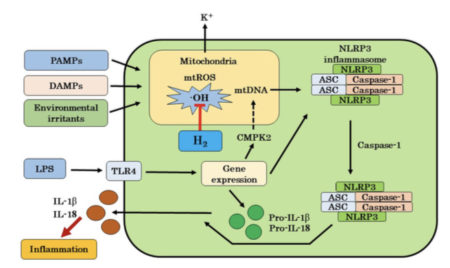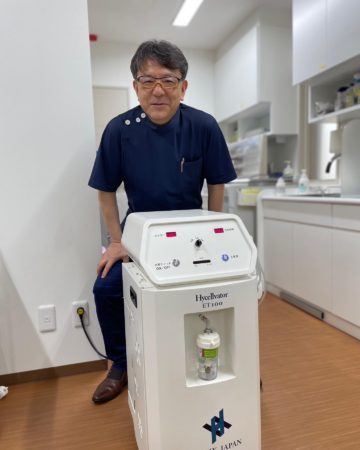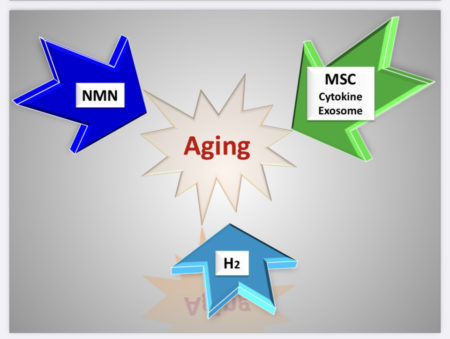Considering Recovery of Mitochondrial Functional Part 3: Effect of Hydrogen on Chronic Inflammation
Chronic inflammation is at the root of many diseases.
Recent research has revealed that many inflammations are induced by oxidative stress caused by reactive oxygen species generated in mitochondria in cells.
Since chronic inflammation is involved in many diseases, it is no exaggeration to say that chronic inflammation is the root of all diseases.
Modern medicine can control acute inflammatory diseases but not chronic inflammatory diseases.
Inflammation is induced by the release of inflammatory cytokines produced by a type of white blood cell.
Prolonged mild inflammation damages the body and induces chronic inflammation.
Recent studies have shown that mitochondria play an important role in the production of inflammatory cytokines.
Hydrogen is an inert substance.
However, inhalation of 2% hydrogen gas after resuscitation of cardiac arrest patients can be expected to restore brain function in particular.
Hydrogen is used to remove reactive oxygen species generated during ischemia-reperfusion in the brain, thereby minimizing damage to brain tissue and leading to recovery of brain function.
Hydrogen can selectively eliminate hydroxyl radicals, which are the most oxidizing reactive oxygen species.
The mechanism by which hydrogen suppresses inflammation was not well understood.
Several publications have shown that the effects of hydrogen in animal models of inflammation are based on the inhibition of mitochondrial oxidation.

Hydrogen is the only substance that can enter mitochondria and eliminate hydroxyl radicals, so only hydrogen can cure chronic inflammatory diseases and many diseases related to chronic inflammation.

At our hospital, we perform aging treatment as the following three arrows:
① NMN (nicotinamide mononucleotide) therapy
② Human-derived mesenchymal stem cell culture supernatant (exosome) therapy
③ Hydrogen gas inhalation therapy.
We use them to treat age-related changes in the body from the cellular and even mitochondrial level.


